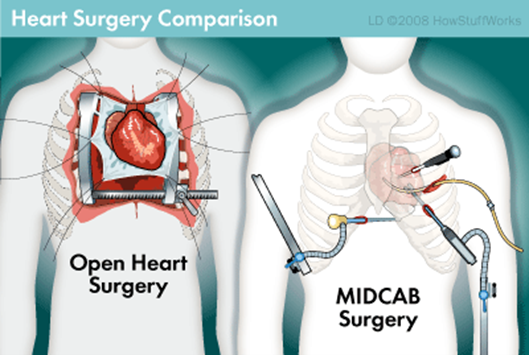A nurse is caring for a client who is scheduled for open heart surgery. The client states, "I am confident I will be able to go home a few hours after the surgery." The nurse should identify that the client is experiencing which of the following stages of grief?
Anger
Depression
Denial
Acceptance
The Correct Answer is C
The correct answer and explanation is:
c. Denial
The nurse should identify that the client is experiencing the stage of denial in the grief process. Denial is a common psychological defense mechanism that individuals may exhibit when faced with a stressful or overwhelming situation, such as the prospect of open heart surgery. It involves a refusal to accept or acknowledge the reality of the situation. In this case, the client's statement of being confident to go home shortly after surgery demonstrates a denial of the potential challenges and recovery process associated with such a procedure.
Explanation for the other options:
A . Anger: Anger is a stage of grief characterized by feelings of resentment, frustration, and hostility. It is common for individuals to experience anger as part of the grief process, but the client's statement does not indicate anger.
B. Depression: Depression is another stage of grief marked by feelings of sadness, hopelessness, and loss. While it is normal for individuals to experience some level of anxiety or sadness before undergoing surgery, the client's statement does not specifically reflect depression.
d. Acceptance: Acceptance is the final stage of grief, where individuals come to terms with their situation and find a sense of peace or resolution. The client's statement indicates a lack of acceptance as they are denying the potential impact of the surgery and its recovery process.

Nursing Test Bank
Naxlex Comprehensive Predictor Exams
Related Questions
Correct Answer is B
Explanation
b. A client who has hemiparesis and lives alone.
Explanation:
The correct answer is b. A client who has hemiparesis and lives alone.
An interdisciplinary care conference involves the collaboration of multiple healthcare professionals from different disciplines to develop a comprehensive care plan for a client. In this scenario, the client with hemiparesis who lives alone requires an interdisciplinary care conference because their condition and living situation present complex challenges.
Clients who had surgery for cataract removal and live in a rural location (option a) may require support with transportation and follow-up appointments, but it does not necessarily warrant an interdisciplinary care conference.
A client who requires assistance to pay for dressing supplies (option c) may benefit from financial counseling or resources, but it does not typically require the involvement of multiple healthcare professionals in a care conference.
A client who requires instruction regarding medication administration (option d) can typically receive education from a nurse or pharmacist without the need for an interdisciplinary care conference.
In contrast, the client with hemiparesis who lives alone may require input from various professionals such as physical therapists, occupational therapists, social workers, and home healthcare providers to address their physical limitations, safety concerns, and support needs. Therefore, an interdisciplinary care conference is necessary to develop a comprehensive discharge plan that addresses all aspects of their care and promotes their well-being in the community.
Correct Answer is A
Explanation
A. You have the right to refuse the recommended treatment plan.
As a nurse, it’s essential to respect the autonomy and decision-making capacity of your patients. Patients have the right to make informed choices about their own healthcare, including whether to accept or decline treatment recommendations. By acknowledging the patient’s right to refuse treatment, you empower them to be active participants in their care.
B.Option b is not the correct answer because it focuses on informing the provider without addressing the client's concerns or providing guidance.
C.Option c is not the correct answer because it emphasizes the medical consequences of not treating the cancer without acknowledging the client's personal beliefs or values.
D. In cases like yours, it is best to talk with your clergyperson before deciding this.
While option D acknowledges the importance of seeking emotional and spiritual support during difficult decisions, it does not directly address the patient’s right to refuse treatment. As a nurse, your primary responsibility is to respect the patient’s autonomy and provide accurate information about their treatment options. Encouraging open communication with a clergyperson or any other trusted individual can be beneficial, but it should not override the patient’s right to make their own decisions regarding their healthcare.
Whether you are a student looking to ace your exams or a practicing nurse seeking to enhance your expertise , our nursing education contents will empower you with the confidence and competence to make a difference in the lives of patients and become a respected leader in the healthcare field.
Visit Naxlex, invest in your future and unlock endless possibilities with our unparalleled nursing education contents today
Report Wrong Answer on the Current Question
Do you disagree with the answer? If yes, what is your expected answer? Explain.
Kindly be descriptive with the issue you are facing.
